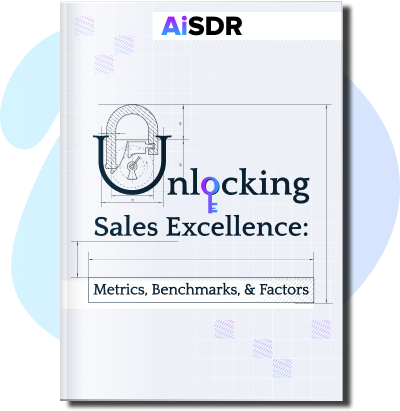Ideal Customer Profile vs Sales Persona

It’s not about one or the other. It’s about aligning your personas and ICPs to drive your business forward
Ideal customer profiles and sales personas are important elements of your sales toolkit.
Keeping them aligned and knowing how they complement each other will help you get better results.
Here’s a closer look at each one, as well as how they’re similar and different.
What is an ideal customer profile?
An ideal customer profile (ICP) is a model that outlines the qualities of your perfect customer.
But what makes it different from buyer personas and customer personas is that personas focus on a specific type of person while ICPs focus on organizations and companies.
As a result, ICPs are like a roadmap that tells sales and marketing teams who to focus their efforts and resources on.
For instance, if your product is for small companies and startups, an ICP will help you filter out medium and enterprise organizations so that you don’t waste time and money trying to sell to them. This allows you to optimize your sales and marketing spend and ensure every dollar is used wisely.
Alternatively, if you offer multiple pricing tiers, you can map out ideal customers for each tier.
What data does an ICP have?
ICPs frequently include this data:
- Firmographic (size, growth stage, industry, location)
- Financial (budget, revenue, latest funding round)
- Intent (recent news, hiring intent, technology stack)
- Behavioral (purchase frequency, average order value, product use, decision-making)
This is far from an exhaustive list as ICPs can also contain technographic and psychographic data, as well as technology stack and a snapshot of the customer’s current competitive landscape.
What is a sales persona?
A sales persona is a model of a member of your sales team, such as a sales development representative or account executive.
Sales personas can even replicate company founders if the organization relies on founder-led sales.
Depending on how fully you develop the persona, it can function anywhere from a cheatsheet to a complete sales playbook. Sales personas can also be used to configure AI email writers like AiSDR to run your outreach on autopilot.
What data does a sales persona have?
Sales personas frequently include this data:
- Your outreach goal
- Stylistics
- Information about your company & target customers
- Customer pain points and how you solve them
- Competitors and how you’re different
- Objections and how to overcome them
- Social proof (e.g. case studies, testimonials)
- Sales emails, tactics, and frameworks
Ultimately, a sales persona should try to contain all the information that a typical sales rep would need to know to do their job effectively.
Similarities between ICPs and sales personas
Since both ICPs and sales personas are strategic tools for running sales and marketing, they share several similarities.
Targeted approach
ICPs capture the image of your perfect customer, enabling you to filter out all others and double down on only companies that match the criteria set by your ICP.
Similarly, sales personas help you figure out the best method of approach when engaging a lead for a possible deal. Sales personas further allow you to drill deeper into the people at your ideal customer company and tailor messaging based on their position and potential pains.
Data-driven design
ICPs and sales personas need to be built using data and insights you’ve gathered via primary or secondary research.
Without data backing them up, ICPs and sales personas are essentially a collection of assumptions about who you think you want to sell to and how you think you should sell.
Ideally, you’ll fine-tune your ICPs and personas with the help of actual customer data and sales experiences. But if you’re still in the early stages, you can use these tools as initial hypotheses to validate once you’ve successfully closed deals and onboarded customers.
Alignment with business goals
For them to be effective, ICPs and sales personas must align with your overall business objectives.
ICPs help you identify which companies are most likely to contribute to your revenue growth while sales personas shine at matching the right sales strategies and techniques based on the buyer’s characteristics.
Both tools help you allocate resources, assign reps, and prioritize customers or leads.
Differences between ICPs and sales personas
Due to its name, sales personas are frequently used interchangeably with terms like ICP, buyer persona, and customer persona. (On a side note, seller persona or sales rep persona might be clearer, but we have what we have 🙂.)
However, ICPs and sales personas serve distinct yet complementary roles in sales and marketing. It also means they come with clear differences.
Focus
ICPs define the characteristics of companies who are likely to become (1) your customers and (2) the biggest drivers of your revenue growth. The more a company doesn’t match your ICP, the more it’s deprioritized in outreach. At the end of the day, ICPs focus on the purchase side of any sales deals.
In comparison, sales personas replicate a person on the selling side of sales deals. Different sales personas specialize in engaging different customers, like account executives with enterprise accounts and SDRs for general outreach.
Components
ICPs often feature a detailed breakdown of firmographics, pain points, buying behavior, and customer success indicators. You can also leverage other intent signals like new vacancies, recent news, and hiring stack. Ultimately, ICPs provide a clear picture about your best-fit clients.
Sales personas usually include the persona’s position in the company (e.g. SDR, AE, founder), communication style, sales techniques, and any information that sales teams need to successfully close deals.
Outcome
The goal of an ICP is to make it easier to focus your sales and marketing strategy. By dedicating your time and energy to best-fit companies, your team hopefully unlocks shorter sales cycles, higher conversion rates, lower cost per lead, and better customer retention. This allows your business to proceed down a more sustainable path.
At the same time, sales personas work on improving the quality of sales engagement and can be quickly configured for specific goals. For example, you can set up the persona to secure a positive response, schedule a discovery call, qualify companies for sales, and get leads to book a meeting.











